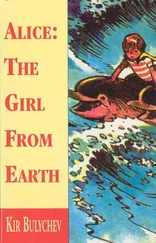Alice Hoffman - Here On Earth
Здесь есть возможность читать онлайн «Alice Hoffman - Here On Earth» весь текст электронной книги совершенно бесплатно (целиком полную версию без сокращений). В некоторых случаях можно слушать аудио, скачать через торрент в формате fb2 и присутствует краткое содержание. Жанр: Современная проза, на английском языке. Описание произведения, (предисловие) а так же отзывы посетителей доступны на портале библиотеки ЛибКат.
- Название:Here On Earth
- Автор:
- Жанр:
- Год:неизвестен
- ISBN:нет данных
- Рейтинг книги:5 / 5. Голосов: 1
-
Избранное:Добавить в избранное
- Отзывы:
-
Ваша оценка:
- 100
- 1
- 2
- 3
- 4
- 5
Here On Earth: краткое содержание, описание и аннотация
Предлагаем к чтению аннотацию, описание, краткое содержание или предисловие (зависит от того, что написал сам автор книги «Here On Earth»). Если вы не нашли необходимую информацию о книге — напишите в комментариях, мы постараемся отыскать её.
Here On Earth — читать онлайн бесплатно полную книгу (весь текст) целиком
Ниже представлен текст книги, разбитый по страницам. Система сохранения места последней прочитанной страницы, позволяет с удобством читать онлайн бесплатно книгу «Here On Earth», без необходимости каждый раз заново искать на чём Вы остановились. Поставьте закладку, и сможете в любой момент перейти на страницу, на которой закончили чтение.
Интервал:
Закладка:
On the day when Hollis phoned her, March had just woken from a nap, and at first she thought she was still dreaming. March, he said. That’s all he said at first, her name, and she had to sit down before she could listen to more. Why did you leave? he asked. Why did you do this to us?
Don’t be mean, that’s what she said to him, forgetting where and who she was, at least for the moment.
You’re the mean one, he’d said to her. It’s you.
They spoke every night after that, hushed and secret calls, conversations so passionate their words burned. March was seven months pregnant, but that didn’t keep her from calling him. For some reason, she thought it could go on and on that way, but then he made it clear that he wanted her to come back to him. He’d fly out and get her or messenger a first-class ticket. March looked out at her lemon tree. She could feel the baby inside of her moving, and that’s when she knew she couldn’t go. Hollis, however, seemed incapable of understanding that she was too far along in her pregnancy to pack a suitcase and leave.
If you wanted to, you would, he kept saying. If you loved me, you’d do it.
Each night he sounded more bitter. Each night, his disappointment grew. Finally, March called the Lyon to discover that Hollis had moved out. After Gwen was born, March was so distracted, in such a milky trance, that she was able to keep herself from thinking about him. By the time she admitted to herself how much she wanted him, he had married Belinda and it was too late to do anything other than sit beside the lemon tree and cry, then go and wash her face before the baby woke from her nap.
“I’ll be home before you know it,” March tells Richard now.
It’s the oddest thing-she feels as though she is lying, and she’s not. He’s so far away, that’s the problem. She’s more connected to whatever is close by-the teakettle whistling in the kitchen, the first star in the sky.
“Five days tops,” she says. “We’ll go over the estate, pack up the house, and we’re gone.”
It takes Richard a long time to answer, as if the distance between them has somehow slipped them into different time warps.
“I don’t know.” Richard is stretched out on his bed, but he might as well be floating through space. “I worry about you being there.”
“Well, don’t.” March can barely hear him now. It must be the connection, or the disparity between a starry night and a bright afternoon. “I love you,” she tells her husband, but her voice sounds wavery, as if she needed to convince either him or herself.
After March hangs up the phone, a dog somewhere on the other side of Fox Hill begins to howl. Looking out the window, it’s possible to view a vista that appears to reach on without end; it’s as if she can look across the darkness into another universe.
“Did you want milk and sugar?” Gwen calls from the kitchen, where she’s fixing the pot of tea. When there’s no answer she goes to the doorway and sees her mother with her coat still on, standing by the phone. “Mom?”
“You know what?” March says. “I’m too tired for tea. You have it. I’m going to bed.”
Not that she could sleep if she tried. Not in this house. When March goes to her room, she sees the same quilt, fashioned of red and white squares, that was on her bed when she used to think about Hollis. It was as if his image had been implanted inside her eyelids; she carried him with her night or day, eyes opened or closed. She thought about Hollis so much you’d guess there’d be nothing left to think, but here she is, doing it all over again.
It started with all that kissing out on the roof, on hot nights when they couldn’t sleep. In the morning, they’d always pretend nothing had happened. They avoided each other or were overly polite; sometimes, they did manage to forget for an hour or two, long enough to go swimming at Olive Tree Lake, where they raced against each other in the deep water for hours, as though they were nothing more than friends.
When Henry Murray died, at his desk, in his office on Main Street, everything in the house went black for two weeks. All the mirrors were covered with old sheets, and the door was left open so visitors could stop and pay their respects. March mostly remembers sitting in a corner and watching neighbors arrive with bouquets of lilies and platters of food. Once, Hollis sat down beside her. He didn’t own a suit, and was wearing jeans and a white shirt; when he tried to take March’s hand, she pulled away from him. Hollis took up so much space, and at that moment, March had no room for him. But with Hollis it was all or nothing, always. He was sulky and nasty-tempered for days afterwards, leaving March to feel guilty-about what exactly, she was never quite sure.
She should have learned her lesson then; it was so easy to wound him and so very difficult to make amends. She didn’t search him out to apologize for slighting him until several days later, when the house had cleared out. But when she knocked on his door, he didn’t answer; his belongings were no longer in the bedroom closet or stored in the oak dresser. Alan had decided that Hollis had best move up to the attic, seeing as how he wasn’t a member of the family-he was really, Alan reminded Hollis, nothing at all-and that was where March found him. He was sitting on his bed, under the eaves, where a spider was hard at work on its web. The air was close up here, and filtered through a haze of dust, so that everything you looked at seemed silvery and swirling.
“What do you want?” Hollis said. He had a hard, annoyed tone, and he gave her one of his stares, a mean, superior look that could make almost anyone feel like an idiot.
It was best not to talk to Hollis when he got like this. March sat down on a wooden stool and picked up a book from a box of her father’s law books that was being stored up here. Criminal Procedure. She wondered if criminals had the same talent she did: to appear to be doing one thing-leafing through an old, dusty book-white you were really doing something else completely inside your mind. In March’s case, she was imagining that she was kissing Hollis as she sat there and dust floated by.
There was a sharp, stinging odor in the attic, as if a trail of sulfur had been poured over the wide pine floorboards. It was probably the scent of fury, which, in Hollis’ case, was often overpowering. The heat had a heavy, yellow cast, and it was oddly exhausting. Hollis lay down on his metal bed and turned his face toward the wall. There were squirrels nesting on the other side of the plaster; their feet skittered back and forth, like drumbeats inside the eaves.
“Go away,” Hollis said. “Get lost.”
March knew he could be cruel, she’d seen it herself. In a fight he was particularly dangerous because his own blood didn’t frighten him; he didn’t care if he got hurt. Boys at school had learned this the hard way; even those far stronger than Hollis were amazed at how much punishment he could take. Alan had given up physically harassing him; sticks and stones were nothing to Hollis. broken bones still less. It was humiliation that did the trick. The supper eaten at the kitchen counter. The bed in the attic. Anything secondhand, second-rate, run-down, charitably donated.
“Fine,” March said after he told her to go. She was genuinely amazed by the cool authority of her own voice. “Your loss.”
March felt as if she were outside of herself, perched somewhere in the rafters of the attic, watching calmly as her earthly form flung the heavy law book on the floor. A cloud of dust rose between them. She would have done anything for Hollis at that moment. Thrown herself out the window. Relinquished every possession. Slit her wrists. But she certainly wasn’t about to let him know.
Читать дальшеИнтервал:
Закладка:
Похожие книги на «Here On Earth»
Представляем Вашему вниманию похожие книги на «Here On Earth» списком для выбора. Мы отобрали схожую по названию и смыслу литературу в надежде предоставить читателям больше вариантов отыскать новые, интересные, ещё непрочитанные произведения.
Обсуждение, отзывы о книге «Here On Earth» и просто собственные мнения читателей. Оставьте ваши комментарии, напишите, что Вы думаете о произведении, его смысле или главных героях. Укажите что конкретно понравилось, а что нет, и почему Вы так считаете.












